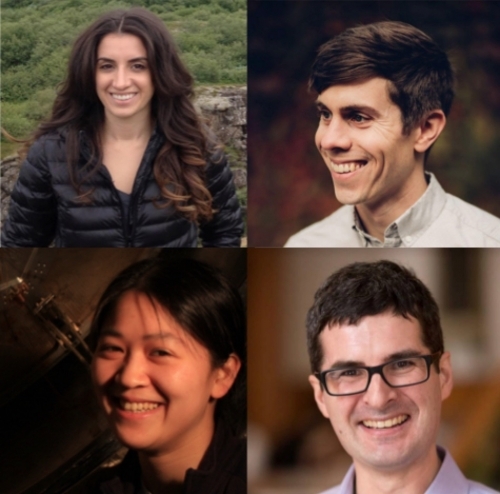McGill University is world-renowned for the quality and exceptional range of its scientific research. Such excellence is made possible by its professors, competitively selected from among the world’s best scientists. This year, 17 new professors joined McGill’s Faculty of Science. The McGill Tribune got to know four of the departments newest additions.
Cynthia Chiang: Physics
Cynthia Chiang joins the Department of Physics as a cosmologist, studying the history, structure, and evolution of the universe. Using specialized telescopes, Chiang seeks to discover how and when the universe began, what it’s made of, and what’s in store for its future.
“I’m most excited about building the instrumentation to make these measurements, with the goal of opening new observational windows on uncharted periods of the universe’s history,” Chiang wrote in an email to the Tribune.
Prior to coming to McGill, Chiang was a senior lecturer at the University of KwaZulu-Natal in Durban, South Africa. She has also spent time as a winterover scientist for the South Pole Telescope (SPT) during the winter of 2012.
“Our work involved troubleshooting various aspects of the new polarimeter camera, as well as regular maintenance tasks […] like applying buckets of grease to the gears outdoors when it was pitch dark and -70˚C outside,” Chiang wrote.
Outside of her academic commitments, Chiang enjoys working on art projects, playing the piano, hiking, and admiring the Montreal art scene. Her principal advice to students is to maintain a healthy work-life balance.
Eric Hehman: Psychology
Eric Hehman comes to McGill’s Department of Psychology from Ryerson University. His research focuses on how people form impressions of one another across group boundaries like race, gender, and sexuality.
At the societal level, Hehman examines how communities differ with respect to prejudice. He hopes that his research will help explain the influence of racial misconceptions on real-world decisions such as who to date, hire, fire, or vote for. Appropriately, Hehman will be teaching Social Psychology (PSYC 215) next semester.
Hehman recommends that undergraduates find and pursue a topic that interests them.
“[As an undergraduate student] my struggle was to find something I was passionate about,” Hehman wrote. “I was a fairly terrible student until I stumbled [upon] research in social psychology.”
A regular weekend for Hehman involves reading science-fiction books, hanging out with friends, and lifting weights at the gym. He enjoys backpacking, hiking, and the easy access to the outdoors from Montreal.
Nagissa Mahmoudi: Earth and Planetary Sciences
Nagissa Mahmoudi researches the function and activity of microorganisms that live at the bottom of the ocean.
“My research employs a variety of field and laboratory based tools, ranging from experimental microbiology to isotope geochemistry, to provide insight into the microbial pathways and interactions that underpin carbon cycling,” Mahmoudi wrote.
Mahmoudi’s research is crucial for understanding how climate change affects the ability of marine environments to store carbon. She will be further discussing the human impact on natural ecosystems in her class, The Evolving Earth (ENVR 202), in Winter 2019. Her class will also touch on how micro and macro-organisms evolved and shaped our planet.
Mahmoudi enjoys visiting historical sites and archaeological ruins. If she were not studying ocean microorganisms she would be working as an archaeologist.
“I have always been fascinated by past civilizations and societies that have their own unique customs and traditions,” Mahmoudi said.
For now, Mahmoudi fulfills this fascination by enjoying Montreal’s diversity, which she considers to be one of the richest in North America.
Eric McCalla: Chemistry
As a Quebec native and McGill alumnus, Eric McCalla is happy to be returning to his alma mater to join the Department of Chemistry.
After receiving his Master’s degree, McCalla decided to become a high school teacher before going back to graduate school. What initially started as a short-term plan turned into an eight-year teaching stint, as McCalla found a passion for education. Now, after completing a PhD at Dalhousie and two post doctoral degrees in Paris and Minneapolis, McCalla considers himself fortunate to have the best of both worlds at McGill: Research and teaching.
McCalla offered some personal advice to students struggling to decide on a career.
“It’s important for [you] to realize that you’ve got time to change your minds along the way and still turn out ok,” McCalla said.
McCalla is excited to be teaching a new course at McGill: Chemistry of Energy, Storage, and Utilization (CHEM 319). This topic ties well into his own research, which focuses on designing advanced materials. Currently, McCalla’s lab investigates new materials to make longer-lasting batteries. Through an efficient screening process, McCalla’s lab is discovering novel materials in the hopes of replacing the flammable liquid electrolytes currently found in batteries with a solid medium.









